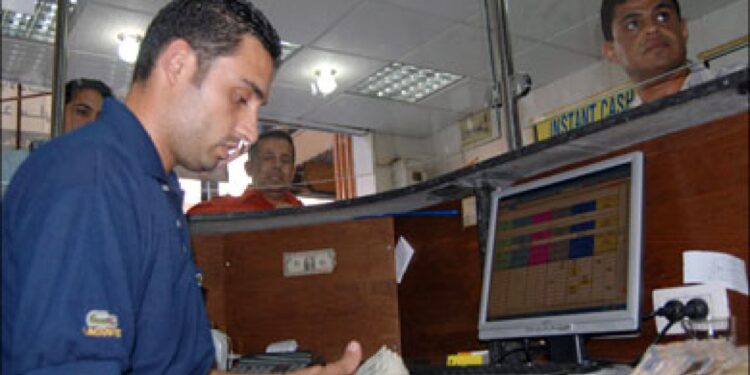In recent days, the Palestine Monetary Authority has mobilized its teams to conduct inspection tours and visits to banks operating in the market and exchange shops subject to its supervision, due to unprecedented developments in the exchange markets, coinciding with an increase in local demand for gold and foreign currencies.
For more than a week, exchange offices operating in the West Bank have been buying foreign currency (dollars and Jordanian dinars) at prices that exceed the permitted margins of movement, compared to the prices issued by the Central Bank of Israel.
The shekel is the main currency in the Palestinian market according to the Oslo Accords, along with the US dollar, the Jordanian dinar, and the European euro to a lesser extent.
Exchange shops were buying dollars and Jordanian dinars from traders at high prices, which, in the Forex industry, was considered a prelude to the emergence of a parallel market for currency trading prices.
Two exchange rates were prevalent in the West Bank: the first was offered by banks operating in the local market, linked to the shekel’s movements against other currencies, and the second was some exchange shops trading currencies with a high margin.
Increased demand for foreign currencies
While the Palestine Monetary Authority issued two separate statements about measures it took to prevent exchange offices from trading currencies with margins exceeding the permitted limits, it did not mention the reasons for the exchange rate differences.
According to banking sources, it is believed that there are several reasons that have come together in the West Bank markets, and increased the demand for foreign currencies:
- The Karameh crossing between Jordan and Palestine was closed for two weeks after the killing of 3 Israelis by the Jordanian martyr Maher Al-Jazi. Jordan is a source of dinars and dollars in the West Bank. In the Palestinian market, 5 Jordanian banks are active out of 13 operating, namely: Arab Bank, Jordan Ahli Bank, Housing Bank, Bank of Jordan, and Cairo Amman Bank.
- Demand for dollars has increased among Palestinians in the West Bank and 48 Palestinians, after the Israeli economic newspaper Globes revealed a proposal in the hands of Israeli Prime Minister Benjamin Netanyahu to withdraw the 200 shekel ($54) bill from the markets. Citizens have resorted to selling the 200 shekel bill in the West Bank markets, and buying dollars and, on lesser occasions, gold, which justifies the increased demand for gold.
- The last reason is due to Israel waging two wars on the Gaza Strip and Lebanon, which fueled rumors on social media platforms about the need to abandon the shekel.
All of the above led some banks to set ceilings for cash withdrawals in foreign currencies, and prompted the Palestine Monetary Authority to intervene to restore control over the market.
currency manipulation
On September 24, the Monetary Authority warned exchange companies and shops against manipulating the exchange rate, and issued instructions according to which a margin is set between the selling price of the currency and the prevailing price for buying it on global screens of a maximum of 200 basis points.
Instructions included:
- Regulating the buying and selling of the main currencies traded in the Palestinian market (dollar, dinar, shekel).
- The instructions prohibit the execution of operations and deals exceeding $20,000 or its equivalent in other currencies.
- The Monetary Authority confirmed that it will take strict measures against money changers who violate these instructions, which include closing non-compliant money changers and even withdrawing their licenses if necessary.
- The Monetary Authority confirmed that the news about the Israeli side stopping dealing with the 200 shekel denomination is not true, stressing that there are no concerns about the continued possession and dealing with this note.



